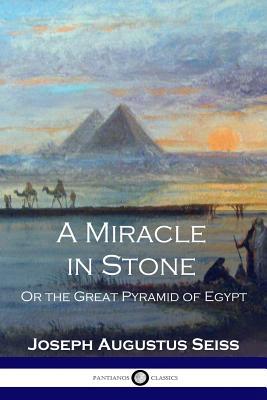A Miracle in Stone comprises three lectures on the nature of the Great Pyramid of Giza in Egypt.
Notable for serving as an overview of archeological and spiritual investigation of the Great Pyramid as it stood in the 1870s, this book discusses the Egyptian pyramids in a manner which considers their origins and construction methods. After describing both the interior and exterior of the structures, Joseph Augustus Seiss embarks on a series of speculations consistent with his lifelong interest in pyramidology.
The one, large diagram which follows the preface of the work serves as a useful reference point for readers. This in itself is an accurate rendition of the great pyramid's structure and interior, including the passageway and tomb at its center. Each aspect of the drawing has a corresponding letter, with the smaller pyramids of Giza also appearing.
The mystery behind how Giza's pyramids were built invited much speculation, with the pyramidology movement rapidly growing in the late 19th century. The idea that God or a divine spiritual force had either singlehandedly made, or contributed to, the construction of the great pyramids was popular. For his part, Seiss considers the pyramid to be a great altar to the divine.
